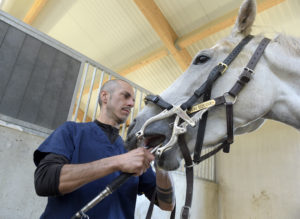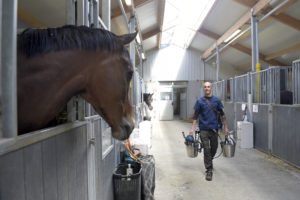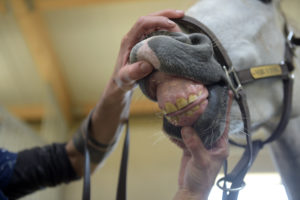Horse owners and trainers play a vital role in identifying when a horse may need dental care. In this blog post, I will share some common warning signs I’ve encountered that may indicate your horse requires dental attention and why regular check-ups are important.
In my experience, these are some general signs that your horse may have dental problems:
- Reluctance to eat or difficulty chewing
- Dropping hay or feed in water
- Slow eating, accompanied by head twisting
- Quidding (spitting partially chewed hay out)
- Packing hay or feed into cheeks
- Unpleasant breath
- Choke or excessive salivation
- Loss of condition
Some dental issues may become more apparent when your horse is ridden. Look out for the following signs:
- Resistance to fitting the bit into the mouth
- Refusing contact with the bit (high or low head carriage)
- Uneven contact and stiffness on one rein
- Rearing or unwillingness to go forward
- Bucking
- Head tossing and tilting
- Taking hold of the bit (pullers)
Throughout my career, I’ve encountered horses that showed no obvious signs of dental problems, yet upon examination, I discovered serious issues. Horses are incredibly adaptable and can cope with pain remarkably well, which is why regular dental check-ups are crucial.
Equine dentistry is primarily focused on prevention. Just as a farrier should visit your horse before they become lame, I believe an Equine Dental Technician or Equine Dentist should examine your horse’s teeth before problems arise. Depending on your horse’s diet, age, and jaw alignment, they may require dental care once or twice per year.
As a horse owner or trainer, you play a crucial role in identifying when your horse may require dental care. By keeping an eye out for these warning signs and scheduling regular dental check-ups, you can ensure your horse’s well-being and prevent future dental issues.
If it’s time for a check-up or if you suspect your horse may need dental care, please don’t hesitate to book an appointment with me.





